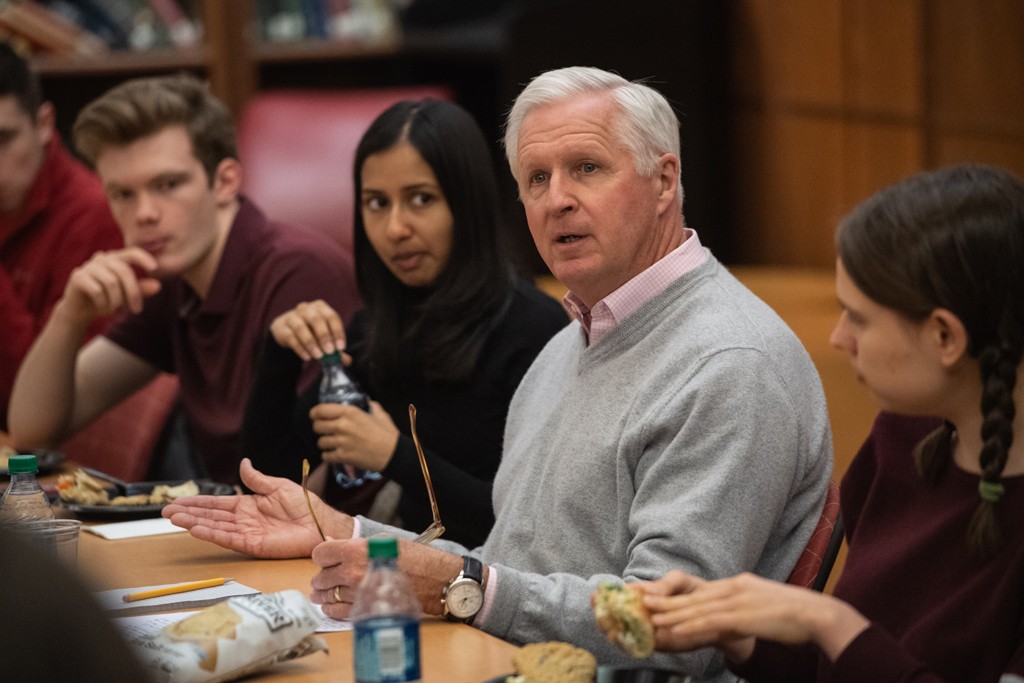Ethics & Lunch
Kim Jeffery P’21: Values-based leadership and building organizational culture
Kim Jeffery talked to students about what it takes to be an ethical leader. When Jeffery became the chairman and CEO of Nestlé Waters North America in 1992, he faced an uphill battle against beverage powerhouses Coke and Pepsi, who at the time were both making a play to take over the bottled water market. However, one year into his transition to CEO, Jeffery had a leadership epiphany—he had inherited a dysfunctional executive team. Their direct reports were defensive about their own functions and showed they were working in their own self-interest, disconnected from their teammates. He found that Nestlé Waters’ previous mission statement was meaningless because the company was not living up to it, and he realized that he had been managing instead of leading. So when considering how David would beat Goliath, he realized a culture overhaul could be the answer.
By 2002, Jeffery had led Nestlé Waters to develop a very strong culture that embraced trust in one another, teamwork, a strong bias for personal accountability, respect for each other, and a very simple belief in the concept of “we versus me,” which Jeffery describes as a group success mentality. He positioned Nestlé Waters as a human assets-based company, and re-centered its culture around a core set of stated aspirations and beliefs. Jeffery worked hard over many years to close the gaps in the company between what people said and what they did, standing by his belief that if a company is really practicing values-based leadership, the gaps should be too small for a gnat to squeeze through. To him, values-based leadership requires lots of communication, introspection, self-awareness, and a high level of emotional intelligence. He impressed upon students that, contrary to criticism, values-based leadership is not soft; it’s actually quite firm, he said, because developing a relationship with an employee that ensures that they are valued allows a leader to give criticism without the risk of their employee taking it personally.
Jeffery found that it slowly became second nature to follow through and treat people consistently using the company’s aspirations and beliefs framework, regardless of an individual’s position in the company. He contends that this ethics-based culture shift was instrumental to helping Nestlé Waters maintain its place as an industry leader. For students preparing to go into the workplace, he stressed the importance of interviewing and looking for indicators of a company’s culture. Then, once in a leadership position, set even higher standards for yourself and your company.
Caitlan Griffith ’20, Winston undergraduate assistant




